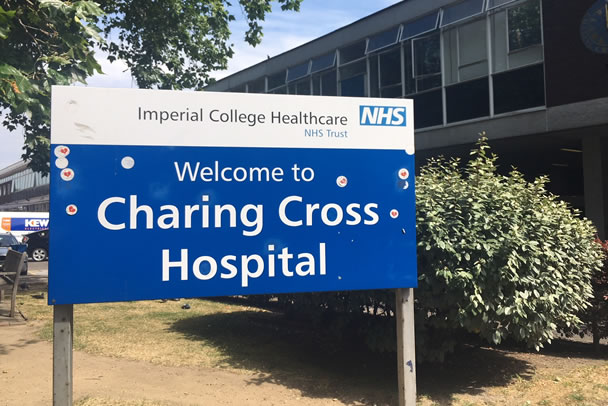Local Hospitals To Provide Covid-proof Surgery Hubs
System will allow for patients without the virus to receive treatment

A senior NHS chief has explained a new strategy London hospitals will use to keep patients safe, even if the capital sees a huge second surge of Covid-19.
Professor Tim Orchard, chief executive of Imperial College Healthcare NHS Trust, said hospitals across London including Charing Cross and Hammersmith are looking to create dedicated “hubs”, where non-Covid patients will receive routine, “elective” treatments and operations.
A huge problem that arose from the first Covid wave was the huge “backlogs” it caused on patient waiting lists for elective treatments, such as hip and knee replacements, cataract surgery or kidney stone removal.
One in 50 patients in England and Wales have now been waiting a year or more for planned surgery, according to an NHS report released this week.
The backlogs occurred because many patients feared they would not be safe going into hospitals. And because doctors and nurses had to be retrained and redeployed to intensive care units, where Covid patients on ventilators needed round-the-clock attention.
Outlining the problem to the Imperial College Trust’s board members on September 30, Professor Orchard said: “It does feel like London at the moment is sitting poised, and if we can pull back the level of community transmission, we may avoid significant hospital admissions.
“How do you plan for a second surge and how do you make sure that we keep services going?
“[The] ask of the NHS is to get back to 100 per cent of activity this autumn. Of course, even if we do that, we won’t eat into all of the backlog that has happened over the last few months.”
He said the solution was to create “fast track surgical centres” or “hubs” at London’s hospitals that would specialise in elective care. This is now being planned at the Trust’s three major hospitals in West London – Charing Cross, Hammersmith and St Mary’s Hospital in Paddington.
“We know that for operations you might describe as high-volume but low-complexity, you get definite advantages by putting those together and forming, sort of, elective care hubs, that can do large numbers of these procedures,” Professor Orchard said.
“If we can create these hubs, that are away from our non-elective [intensive care] sites… They won’t be affected by huge surges in emergency admissions. So we can then keep going with some operations that have been stuck in the backlog.”
He continued: “London as a region is looking at how we can do that at each individual part of London. We are looking across the whole of north west London to deliver these centres that will deliver this type of activity.”
He said Imperial College Trust was busily planning to make sure it would have enough of key types of staff, such as anaesthetists, who are needed both for intensive care and to assist with the elective treatments. He also said staff access to counselling and mental health services had “doubled”.
Owen Sheppard – Local Democracy Reporter
October 2, 2020